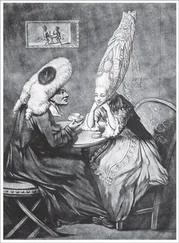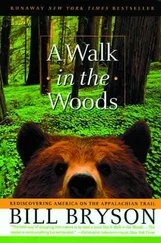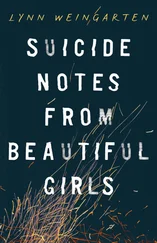Bill Bryson - Notes from a small Island
Здесь есть возможность читать онлайн «Bill Bryson - Notes from a small Island» весь текст электронной книги совершенно бесплатно (целиком полную версию без сокращений). В некоторых случаях можно слушать аудио, скачать через торрент в формате fb2 и присутствует краткое содержание. Жанр: Современная проза, на английском языке. Описание произведения, (предисловие) а так же отзывы посетителей доступны на портале библиотеки ЛибКат.
- Название:Notes from a small Island
- Автор:
- Жанр:
- Год:неизвестен
- ISBN:нет данных
- Рейтинг книги:4 / 5. Голосов: 2
-
Избранное:Добавить в избранное
- Отзывы:
-
Ваша оценка:
- 80
- 1
- 2
- 3
- 4
- 5
Notes from a small Island: краткое содержание, описание и аннотация
Предлагаем к чтению аннотацию, описание, краткое содержание или предисловие (зависит от того, что написал сам автор книги «Notes from a small Island»). Если вы не нашли необходимую информацию о книге — напишите в комментариях, мы постараемся отыскать её.
Notes from a small Island — читать онлайн бесплатно полную книгу (весь текст) целиком
Ниже представлен текст книги, разбитый по страницам. Система сохранения места последней прочитанной страницы, позволяет с удобством читать онлайн бесплатно книгу «Notes from a small Island», без необходимости каждый раз заново искать на чём Вы остановились. Поставьте закладку, и сможете в любой момент перейти на страницу, на которой закончили чтение.
Интервал:
Закладка:
It was a mild day, so I decided to walk back to town even though I had no map and only the vaguest idea of where the distant centre of Glasgow lay. I don't know if Glasgow is truly a wonderful city for walking or whether I have just been lucky there, but I have never wandered through it without encountering some memorable surprise the green allure of Kelvingrove Park, the Botanic Gardens, the fabulous Necropolis cemetery with its ranks of ornate tombs and so it was now. I set off hopefully down a broad avenue called St Andrews Drive and found myself adrift in a handsome district of houses of substance and privilege with a comely park with a little lake. At length I passed the Scotland Street Public School, a wonderful building with airy stairwells that I presumed was one of Mackintosh's, and soon after found myself in a seamier but no less interesting district, which I eventually concluded must be the Gorbals. And then I got lost.
I could see the Clyde from time to time, but I couldn't figure out how to get to it or, more crucially, over it. I wandered along a series of back lanes and soon found myself in one of those dead districts that consist of windowless warehouses and garage doors that say NO PARKING GARAGE IN CONSTANT USE. I took a series of turns that seemed to lead ever further away from society before finally bumbling into a short street that had a pub on the corner. Fancying a drink and a sitdown, I wandered inside. It was a dark place, and battered, and there were only two other customers, a pair of larcenouslooking men sitting side by side at the bar drinking in silence. There was noone behind the bar. I took a stance at the far end of the counter and waited for a bit, but noone came. I drummed my fingers on the counter and puffed my cheeks and made assorted puckery shapes with my lips the way you do when you are waiting. (And just why do we do that, do you suppose? It isn't even privately entertaining in the extremely lowlevel way that, say, peeling a blister or cleaning your fingernails with a thumbnail is.) I cleaned my nails with a thumbnail and puffed my cheeks some more, but still noone came. Eventually I noticed one of the men at the bar eyeing me.
'Hae ya nae hook ma dooky?' he said.
'I'm sorry?' I replied.
'He'll nay be doon a mooning.' He hoiked his head in the direction of a back room.
'Oh, ah,' I said and nodded sagely, as if that explained it.
I noticed that they were both still looking at me.
'D'ye hae a hoo and a poo?' said the first man to me.
'I'm sorry?' I said.
'D'ye hae a hoo and a poo?' he repeated. It appeared that he was a trifle intoxicated.
I gave a small, apologetic smile and explained that I came from the Englishspeaking world.
'D'ye nae hae in May?' the man went on. 'If ye dinna dock ma donny.'
'Doon in Troon they croon in June,' said his mate, then added: 'Wi' a spoon.'
'Oh, ah.' I nodded thoughtfully again, pushing my lower lip out slightly, as if it was all very nearly clear to me now. Just then, to my small relief, the barman appeared, looking unhappy and wiping his hands on a tea towel.
'Fuckin muckle fucket in the fuckin muckle,' he said to the two men, and then to me in a weary voice: 'Ah hae the noo.' I couldn't tell if it was a question or a statement.
'A pint of Tennent's, please,' I said hopefully.
He made an impatient noise, as if I were avoiding his question. 'Hae ya nae hook ma dooky?'
Tm sorry?'
'Ah hae the noo,' said the first customer, who apparently saw himself as my interpreter.
I stood for some moments with my mouth open, trying to imagine what they were saying to me, wondering what mad impulse had bidden me to enter a pub in a district like this, and said in a quiet voice: 'Just a pint of Tennent's, I think.'
The barman sighed heavily and got me a pint. A minute later, I realized that what they were saying to me was that this was the worst pub in the world in which to order lager since all I would get was a glass of warm soap suds, dispensed from a gasping, reluctanttap, and that really I should flee with my life while I could. I drank two sips of this interesting concoction, and, making as if I were going to the Gents', slipped out a side door.
And so I returned to the twilit streets along the south bank of the Clyde and tried to find my way back to the known world. It's nearly impossible to imagine what the Gorbals must have been like before they started tarting it up and inviting daring yuppies to move into smart new blocks of flats around its fringes. After the war, Glasgow did the most extraordinary thing. It built vast estates of shiny tower blocks out in the countryside and decanted tens of thousands of people from innercity slums like the Gorbals into them, but it forgot to provide any infrastructure. Forty thousand people were moved to the Easterhouse estate alone and when they got there they found smart new flats with indoor plumbing, but no cinemas, no shops, no banks, no pubs, no schools, no jobs, no health centres, no doctors. So every time they wanted anything, like a drink or work or medical attention, they had to climb aboard a bus and ride for miles back into the city. In consequence of this and other considerations like lifts that were forever breaking down (and why, incidentally, does Britain alone among nations have so much difficulty with moving conveyances like escalators and lifts? I think some heads should roll, frankly) they grew peevish and turned them into new slums. The result is that Glasgow has some of the worst housing problems in the developed world. Glasgow Council is the largest landlord in Europe. Its 160,000 houses and flats represent half the city's total housing stock. By its own estimates the council needs to spend something like .3 billion to bring the housing up to standard. That doesn't include provisions for new housing, but simply making existing housing habitable. At the moment its entire housing budget is about .100 million a year.
At length, I found my way over the river and back into the gleaming centre. I had a look at George Square, which is to my mind the handsomest in Britain, and then trudged uphill to Sauchiehall Street, where I remembered my favourite Glasgow joke. (Also my only Glasgow joke.) It's not a very good one, but I like it. A policeman collars a thief at the corner of Sauchiehall and Dalhousie, then drags him by the hair for a hundred yards to Rose Street to book him.
'Oi, why'd ye do tha'?' asks the aggrieved culprit, rubbing his head.
'Because I can spell Rose Street, ye thieving cunt,' says the policeman.
That's the thing about Glasgow. It has all this newfound prosperity and polish, but right at the very edge of things there is always this sense of grit and menace, which I find oddly exhilarating. You can wander through the streets on a Friday night, as I did now, and never know when you turn a corner whether you are going to bump into a group of tony revellers in dinner jackets or a passle of idle young yobboes who might decide to fall upon you and carve their initials in your forehead for purposes of passing amusement. Gives the place a certain tang.
CHAPTER TWENTYNINE
I SPENT ANOTHER DAY IN GLASGOW POKING ABOUT, NOT SO MUCH because I wanted to be there, but because it was a Sunday and I couldn't get a train home beyond Carlisle. (The SettletoCarlisle service doesn't run on Sundays in winter because there is no demand for its services. That there may be no demand for its services because it doesn't run appears not to have occurred to British Rail.) So I wandered far and wide through the wintry streets, and had a respectful look round the museums, Botanic Gardens and Necropolis, but really all I wanted to do was go home, which was understandable, I think, because I missed my family and my own bed and, besides, when I walk around my home I don't have to watch out for dog shit and vomit slicks with every step I take.
Читать дальшеИнтервал:
Закладка:
Похожие книги на «Notes from a small Island»
Представляем Вашему вниманию похожие книги на «Notes from a small Island» списком для выбора. Мы отобрали схожую по названию и смыслу литературу в надежде предоставить читателям больше вариантов отыскать новые, интересные, ещё непрочитанные произведения.
Обсуждение, отзывы о книге «Notes from a small Island» и просто собственные мнения читателей. Оставьте ваши комментарии, напишите, что Вы думаете о произведении, его смысле или главных героях. Укажите что конкретно понравилось, а что нет, и почему Вы так считаете.












